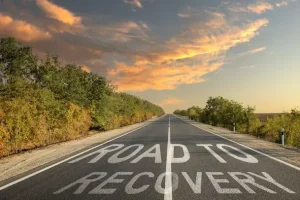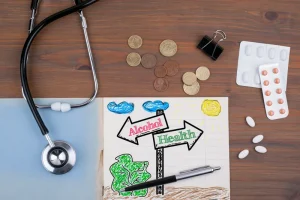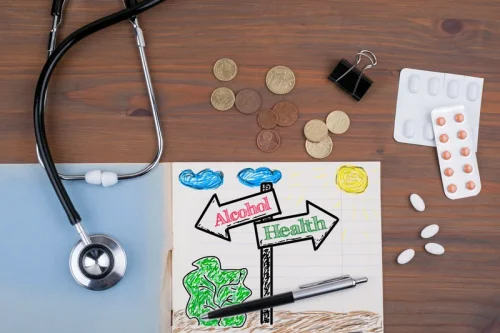
These online meetings are based on Buddhist principles and provide a supportive community for individuals in recovery. Sober Grid is a social networking app that connects individuals in recovery, providing a supportive community for staying sober. The app’s GPS locator user interface, called The Grid, allows you to find other people in recovery nearby, view their profiles, and connect with them. Group therapy is a powerful therapeutic tool that offers a unique opportunity for individuals to come together and support each other while discussing their issues.

Suboxone Treatment in Orlando, Florida

Understanding why we used alcohol and confronting the extent of the problem are necessary steps for lasting change to occur. Seeing a mental health professional can be a great asset, especially if you are diagnosed with a mental illness (or suspect that you might be). They can help to identify how mental illness played into excessive consumption of alcohol and provide specific methods for overcoming those challenges.
Ways to Overcome Negative Self-Talk and Improve Your Mental Health: Embrace Self-Compassion and Thrive
These options empower participants to develop their understanding of sobriety, allowing them to set realistic goals and aspirations without predefined expectations from external sources. You can quit drinking without Alcoholics Anonymous by understanding your addiction and ignoring your cravings. When you first get sober, set your intention and make a clear plan so you know exactly what you’re doing.

Peer support and community
Women for Sobriety (WFS) is a program that is specifically engineered to focus on women’s treatment needs and what will best support their recovery. The groups are led by moderators and serve to promote emotional and spiritual growth free from the bounds of alcohol abuse and addiction. With a bustling online community and local meetings throughout the United States, LifeRing Secular Recovery is an alternative to traditional, spiritually based, 12-Step programs such as AA. LifeRing believes that each individual holds their own key to recovery, and it is not necessary to then place control in the hands of a spiritual being. Recovery from alcohol addiction is challenging, and not one that alcoholism treatment should be pursued alone. But if AA or recovery groups in general aren’t for you, consider meeting with a counselor to help you create healthy coping mechanisms and beneficial means of dealing with unwanted thoughts and behaviors.
- If you are tapering off alcohol or pursuing moderation, it helps to give yourself objective data.
- Regular attendance at group meetings, meditation, personal inventory, mentorship, retreat, and service are integral components of the program, ensuring your success and growth.
- To start family therapy, find an experienced family therapist through a referral from your doctor or by searching online for a therapist near you.
- In contrast to the rigid structure of 12-step programs, many alternative methods embrace a broader range of therapeutic interventions.
- Then, in a way where they can easily, logically, say no to their addiction.
Regular exercise is an excellent alternative therapy method that provides both physical benefits and stress-relief effects. Engaging in physical activity stimulates the production of endorphins – chemicals in your brain that act as natural painkillers and mood elevators. Furthermore, regular exercise can help to reduce cravings for alcohol which are often driven by stress or negative emotions, thus improving mental health. It’s about embracing holistic approaches that consider all factors influencing one’s relationship with alcohol rather than focusing solely on abstaining from its consumption.
The Role of Medication-Assisted Treatment (MAT) in Addiction Recovery
Traditional addiction recovery has long been defined by the 12-step programs like Alcoholics Anonymous (AA), but in recent years, a diverse range of alternatives has surfaced. These programs cater to individuals who seek recovery methods outside of the spiritually-centered 12-step framework. This growing spectrum of non-12-step options emphasizes evidence-based, secular, and personalized approaches, making them appealing to a broader demographic that values flexibility and autonomy in their recovery journey. Peer support plays a pivotal role in successful long-term recovery, regardless of the chosen program. While 12-step programs provide structured community support, alternatives like SMART Recovery and WFS cultivate recovery without aa connections based on shared experiences without the necessity of a higher power.

It will help you focus on the small wins instead of the failures, and will give you something to look back on when you feel yourself struggling. If you start focusing even on the smallest things you are grateful for, you will begin experiencing a shift in your overall thinking which, in turn, can greatly benefit your mental health and recovery. Women for Sobriety also offers online meetings, phone support, and a forum where members can share their experiences and support each other. This may include therapy, medication-assisted treatment, or holistic approaches such as yoga and meditation. Staying sober is a challenging and complex journey that requires a lot of effort, commitment, and support.
Confide in those closest to you and allow them to be your sounding board for your triumphs and failures. Even if they’re not recovering alcoholics themselves, those you talk to are likely invested in your wellbeing and will work with you to resist temptation and lessen the likelihood of relapsing. Alcohol consumption has a lot of negative effects on your body, and exercising can help undo some of the damage caused by substance use. Plus, the endorphins released while exercising help with mental wellness and even has been shown to reduce cravings experienced during late detox and early recovery. Sobriety is a lifelong journey, and while people in recovery do celebrate the big recovery milestones (as they should!) each day spent sober should be just as much of a celebration, especially in those early days of recovery. Celebrate each day spent sober and acknowledge those victories in a way that is special to you.
How to Create a Balanced Life After Addiction Recovery
- In addition to connecting with others in recovery, Sober Grid offers a digital library of mental health resources, peer support coaching, and digital therapeutics.
- It was designed to create community, support and camaraderie for those struggling towards sobriety.
- Evidence shows that substance-use disorders are chronic diseases — involving changes to the brain’s systems for reward, stress and control — rather than a choice (see go.nature.com/4tbcczf).
- At each meeting, women introduce themselves and share a positive action or feeling and relates it back to the 13 acceptance statements.12 Membership is kept confidential, so women can share in private and with security.
- Different support groups exist to help you quit drinking without AA, some with a more secular approach.
While the program’s anonymous nature makes success rates hard to track, an independent 2020 study confirmed that AA is genuinely effective in plenty of cases. There are advantages to the 12 step method, https://ecosoberhouse.com/ and many people experience success with it. However, Alcoholics Anonymous (AA) doesn’t mesh with everyone’s perspective. Some elements of the program, including the belief in a higher power, aren’t the right fit for everyone.
- Incorporating these self-help strategies alongside professional guidance enhances chances of successful rehabilitation from addiction while promoting overall well-being beyond just abstinence from alcohol consumption.
- But if AA or recovery groups in general aren’t for you, consider meeting with a counselor to help you create healthy coping mechanisms and beneficial means of dealing with unwanted thoughts and behaviors.
- Working with a therapist can empower you to recognize and address potential causes of addiction, as well as learn the tools to help you stay sober.
WFS welcomes all expressions of female identity, along with members of the LGBTQ+ community. Meetings typically begin with an introduction and check-in period where members can help to set the agenda for that day based on any pressing issues. If there aren’t any specific topics that come up during check-in, the facilitator will likely have a prepared topic to discuss and work through with the group. The bulk of the meeting is taken up by the working time, where the group works through one of the four program points, using some of the program’s provided tools and techniques. There is usually a donation plate passed around at some point, as the groups are self-sustaining and require donations to function. Meetings close with a closing dialogue to ensure all participants feel heard and understood.
